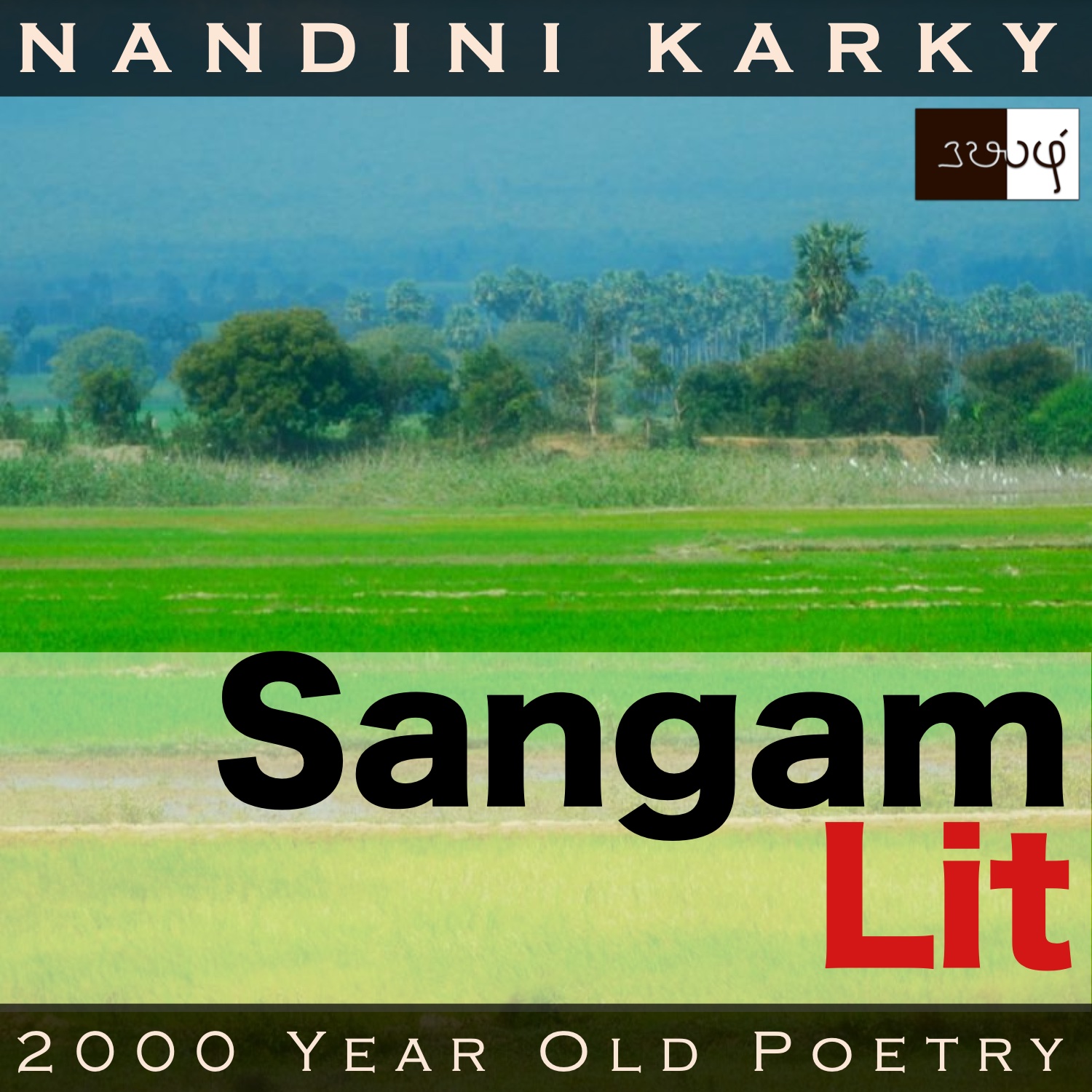Podcast: Play in new window | Download
Subscribe: Apple Podcasts | Spotify | Amazon Music | Android | iHeartRadio | TuneIn | RSS | More

In this episode, we observe the ire of a woman, as depicted in Sangam Literary work, Kurunthogai 238, penned by Kundriyanaar. Set in the farmlands of ‘Marutham’, the verse speaks in the voice of the confidante to the man, refusing to accept his words of reconciliation.
பாசவல் இடித்த கருங் காழ் உலக்கை
ஆய் கதிர் நெல்லின் வரம்பு அணைத் துயிற்றி,
ஒண் தொடி மகளிர் வண்டல் அயரும்
தொண்டி அன்ன என் நலம் தந்து,
கொண்டனை சென்மோ-மகிழ்ந!-நின் சூளே.
‘Return my beauty and leave’ exclaims this verse. The opening words ‘பாசவல் இடித்த கருங் காழ் உலக்கை’ meaning ‘a dark-wooded pestle which pounds on fresh rice’ brings before our eyes an ancient tool used in food preparation. ‘அவல்’ mentioned here is a well-known food item in the Indian subcontinent, which goes by the name of ‘poha’ or ‘chira’ in different parts of the country and is used in many quick-fire recipes. Returning, we next see ‘ஆய் கதிர் நெல்லின் வரம்பு’ meaning ‘on the bund around the exquisite ears of paddy crop’. The word ‘வரம்பு’ employed here has morphed over the years into ‘வரப்பு’, signifying the separator between patches of paddy fields. In ‘வண்டல்’, we glimpse at an ancient game played by young women, who appear in ‘ஒண் தொடி மகளிர்’ meaning ‘women with radiant bangles’. There’s reference to the famous town of ‘தொண்டி’ referred to as ‘Tyndis’ in many Greek and Roman records. Ending with the words ‘நின் சூளே’ meaning ‘your vow’, the verse beckons us to explore more.
What does the mention of a historic town signify here? The context reveals that the man and lady were leading a married life, when the man took to keeping the company of courtesans. The lady was angered by this action of the man. After a while, the man decides to return to his wife, and seeks the confidante’s help. Understanding the lady’s mind, the confidante says to him, “After pounding uncooked, flattened rice, maiden wearing luminous bangles rest the pestle made of black wood on the bund of a picturesque paddy field, and play games together in Thondi. Return my beauty, which was akin to that town, and leave, taking your promises with you, O lord!” With these words, the confidante refuses to accept the man’s request to return to the lady’s home.
Curious how the background of a domestic squabble is set in such a scenic place! The confidante starts by talking about the pounding of flattened rice, using a long pestle, made of black-hued wood. The pounding was the past, for now, this pestle rests on the bank of a field decked with alluring paddy ears. Describing the subjects who have kept this object so, the confidante points in the direction of maiden, who are wearing glowing bangles, and who seem to be playing games together. Narrating that this scene is unfolding in the well-known town of ‘Thondi’, the confidante comes to the matter at hand and says that her beauty is akin to that of ‘Thondi’ and concludes indicating the man needs to return this beauty that he stole away and leave, packing up the promises he rendered to her!
You may wonder about why the confidante is talking about the man stealing away her beauty. A moment to clarify that this is one of those verses in which the confidante speaks in the voice of the lady, for lasting impact. When she says that the man stole her beauty, she actually means the lady’s beauty and health that were taken away by the man, when he abandoned her for the courtesan’s sake. The final blow she renders by saying that the man’s promises were not believable and had no use to appease the lady. Another striking aspect of this verse is the style of simile that compares a town to a lady. Imagine how enticing that town must be to be placed in parallel to the female protagonist, who is always a paragon of beauty in Sangam literature! Can cities today stand up to such a comparison? Here’s something to muse on: Can you think of people in your life, who are like the city you live in or a city you want to visit someday?




Share your thoughts...